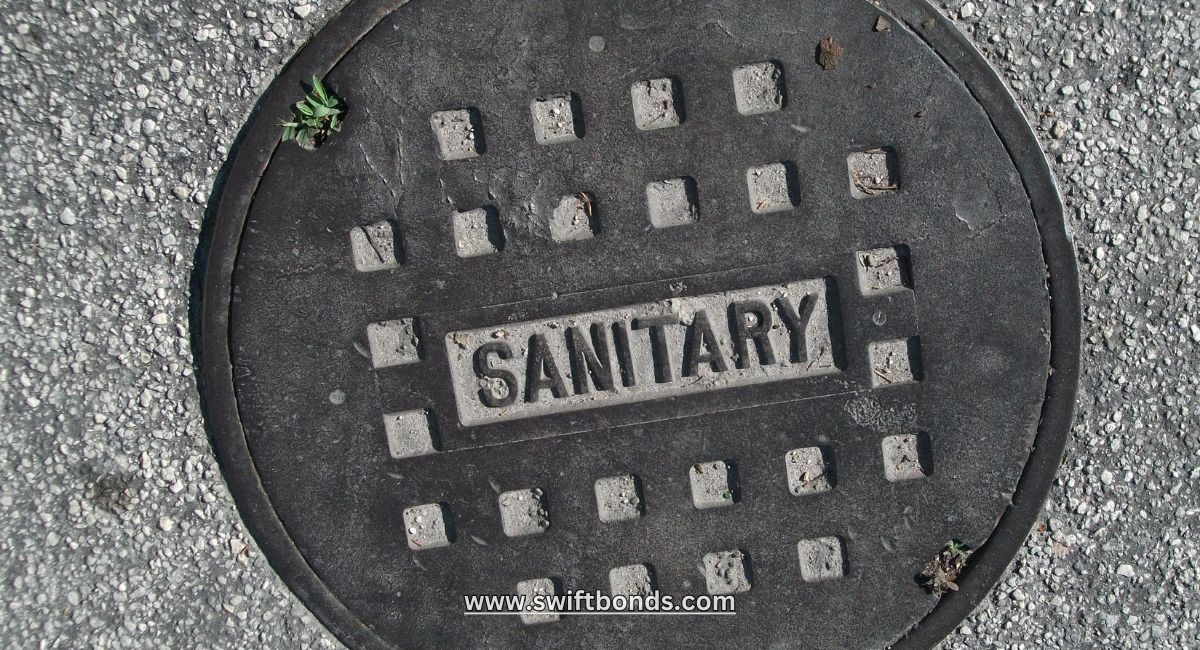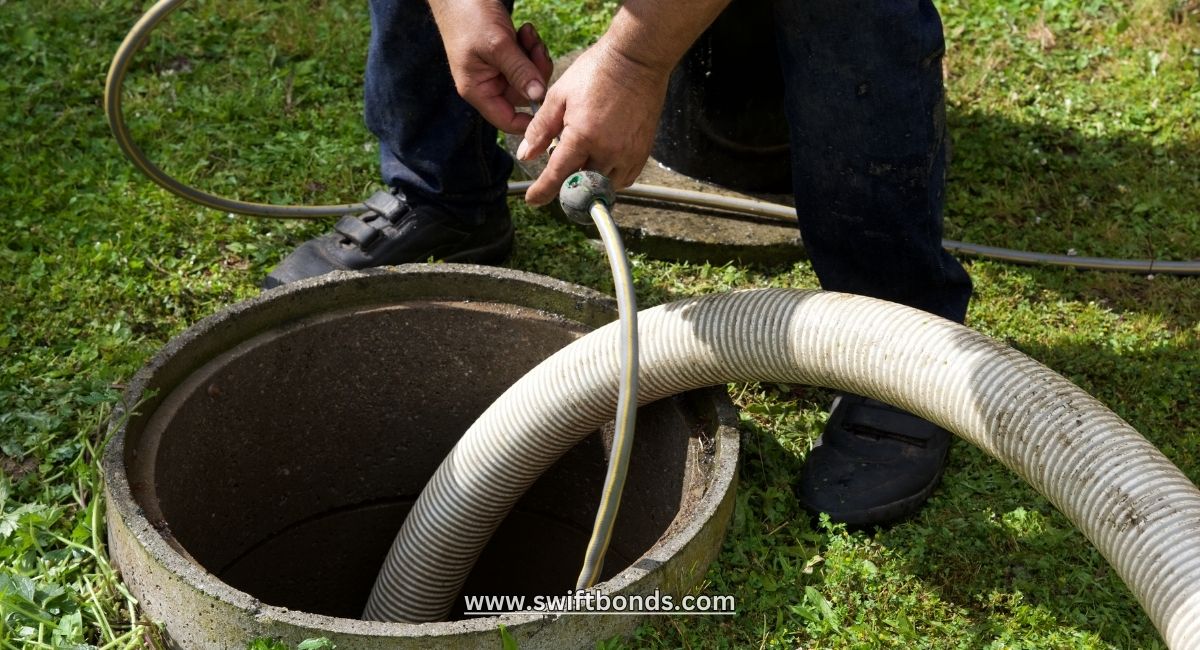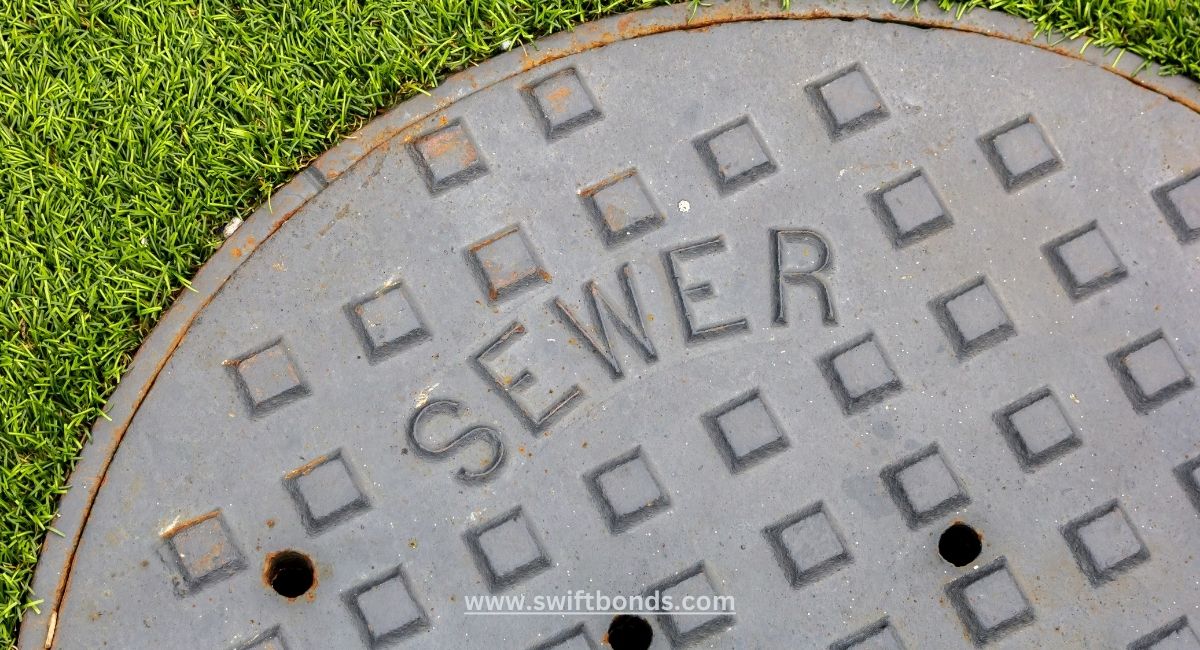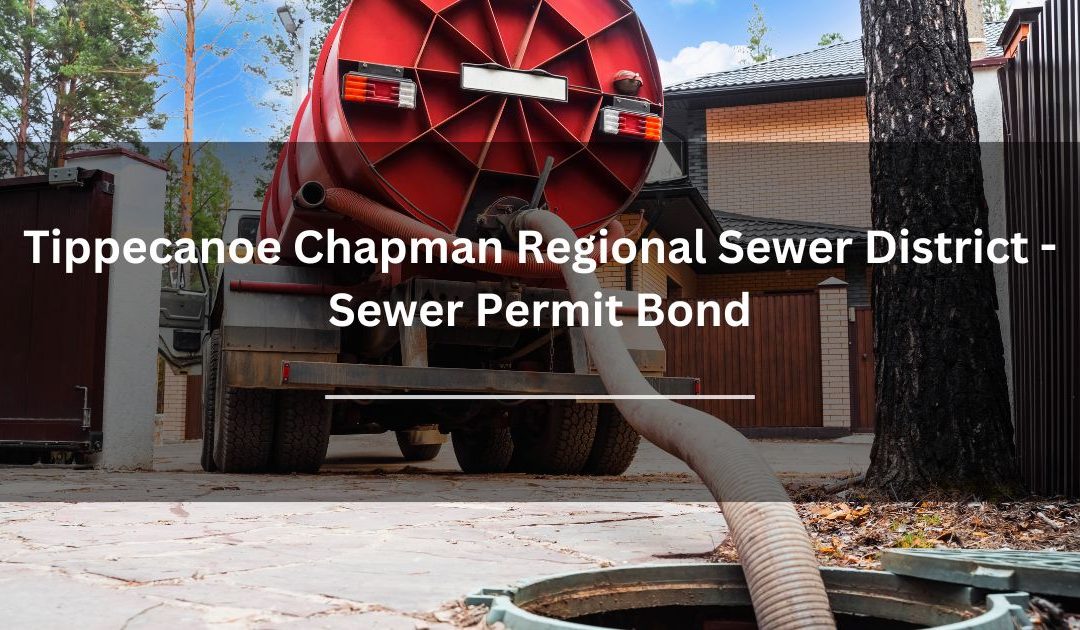Get an Instant Quote on Sewer Permit Bond
Introduction
Sewer infrastructure in Indiana plays a critical role in maintaining public health and environmental safety. Contractors working within the Tippecanoe Chapman Regional Sewer District must meet regulatory standards when installing, repairing, or maintaining sewer systems. The Sewer Permit ($5,000) Bond ensures that contractors fulfill their obligations according to district guidelines.
This bond serves as a financial guarantee that projects will be completed to specification. If a contractor fails to comply with regulations, the Tippecanoe Chapman Regional Sewer District has the right to file a claim against the bond to cover damages or necessary corrective actions.

Common Misunderstandings About This Bond
Many contractors assume that obtaining a sewer permit is the only requirement before starting a project. However, the Sewer Permit ($5,000) Bond is a separate requirement designed to protect public infrastructure.
A frequent misconception is that this bond functions as insurance. In reality, it ensures financial accountability. If a claim is paid, the contractor must reimburse the surety company.
Another misunderstanding relates to bond renewals. Some projects require continuous coverage, meaning that the bond may need to be renewed or extended, depending on the project duration. Like the Luce Township Regional Sewer District, IN - Sewer Installation and Repair Bond and the City of Mishawaka, IN - Street Opening Permit (Engineering Department) Bond, this bond is also important.
Industry Expertise and Guidance
Based on industry experience, securing this bond early in the permitting process prevents unnecessary delays. Contractors who obtain the Sewer Permit ($5,000) Bond can move forward with their projects without legal or financial setbacks.
This bond provides assurance to the Tippecanoe Chapman Regional Sewer District that contractors will complete work according to approved specifications. It also demonstrates financial responsibility, reducing risk for the district and the public.

Steps to Secure This Bond
What has been discovered is that following a structured approach makes the bonding process more efficient. The necessary steps include:
- Confirm Bond Requirements – Verify the bond amount and conditions with the Tippecanoe Chapman Regional Sewer District.
- Select a Surety Provider – Work with a reputable surety company specializing in permit bonds.
- Complete the Application – Provide business details, financial history, and project scope.
- Undergo Financial Review – The surety will assess financial standing before issuing the bond.
- Obtain and Submit the Bond – File the bond with the Tippecanoe Chapman Regional Sewer District before beginning work.
Moving Forward with Compliance
Research has shown that obtaining the Sewer Permit ($5,000) Bond before applying for a permit prevents administrative delays. Contractors who wait too long to secure this bond risk project suspension or fines.
Common mistakes include submitting incomplete bond applications, which can cause delays. Ensuring accuracy in documentation helps expedite approval and keeps projects on track.

Positive Outcomes of Meeting Bond Obligations
Lessons from past projects indicate that contractors who comply with bonding requirements experience fewer project delays and regulatory issues. Meeting these obligations builds trust with municipal agencies and strengthens professional reputations.
This bond is not just a requirement; it is a commitment to quality and accountability. Contractors who maintain compliance improve their credibility and increase their chances of securing future contracts.
Compliance with Indiana Regulations
The Sewer Permit ($5,000) Bond aligns with Indiana’s regulations for infrastructure projects. Contractors must comply with state and municipal requirements, including performance and permit bonds.
Indiana construction laws, such as the Indiana Little Miller Act (Fla. Stat. § 255.05), set the standard for bonding requirements. While this specific bond falls under municipal regulations rather than state procurement laws, compliance with local bonding guidelines remains a priority.
Contractors working in Indiana should reference official sources such as the Indiana Legislature’s official site, the Indiana Department of Business & Professional Regulation (DBPR), and the Indiana procurement guidelines to stay updated on compliance requirements.

Conclusion
A successful sewer project within the Tippecanoe Chapman Regional Sewer District depends on strict adherence to all permitting and bonding requirements. The Sewer Permit ($5,000) Bond ensures that contractors fulfill their commitments, protecting both public infrastructure and financial interests.
By securing this bond, contractors demonstrate professionalism, financial responsibility, and regulatory compliance. Taking the necessary steps to obtain and maintain this bond benefits both project success and long-term business growth.
Frequently Asked Questions
What is the purpose of the Sewer Permit ($5,000) Bond?
This bond guarantees that contractors complete sewer-related projects according to the Tippecanoe Chapman Regional Sewer District's regulations. It provides financial protection if work is not performed to standard.
Who needs to obtain this bond?
Any contractor performing sewer installations, repairs, or maintenance within the Tippecanoe Chapman Regional Sewer District must secure this bond before obtaining a permit.
How long does it take to get this bond?
The processing time depends on the surety provider and the applicant’s financial standing. Most bonds are approved within a few business days.
What happens if a claim is filed against this bond?
If the Tippecanoe Chapman Regional Sewer District files a claim due to incomplete or defective work, the surety may compensate the district. The contractor is responsible for reimbursing the surety for the claim amount.
Is this bond required for every sewer project?
Bond requirements vary by project scope. Some projects may require additional bonds based on complexity and risk factors.
How does this bond differ from insurance?
This bond protects the Tippecanoe Chapman Regional Sewer District and the public, while insurance protects the contractor. If a claim is paid, the contractor must reimburse the surety.


